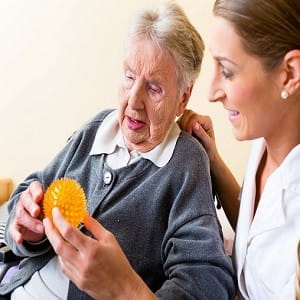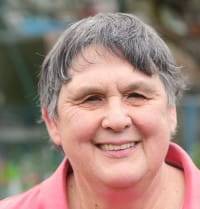Blog
Help to decide which are the most important questions about musculoskeletal disorders research

We are forwarding an invitationfrom the Musculoskeletal Disorders Research Advisory Group Versus Arthritis to take part in a survey. The survey will help them to prioritise their research. The details are as follows:
Musculoskeletal Disorders Research Advisory Group Versus Arthritis
PART 2 Research Priority Setting in Musculoskeletal Disorders 2020/2021
Ethics Approval Reference: R71769/RE003 (Medical Sciences Interdivisional Research Ethics Committee, University of Oxford)
The Musculoskeletal Disorders Research Advisory Group Versus Arthritis* is carrying out an online research prioritisation exercise. In this second part of the exercise, we’re seeking opinions on the top priorities for musculoskeletal disorders research.
We want to hear from you if you are, or care for, a person living with a musculoskeletal condition, a researcher, a healthcare professional, an industry representative, a research funder, a healthcare provider or government policy maker.
Part 1 of our research prioritisation exercise was completed between November 2020 – January 2021. From peoples’ responses to our first survey, we produced a list of research areas into musculoskeletal conditions. By deciding what are the most important areas for you will help us to identify, shape and champion the areas of research to better understand and manage musculoskeletal conditions. This is a critical part of planned work by the Musculoskeletal Disorders Research Advisory Group Versus Arthritis throughout 2020 and 2021.
The survey is now live and will remain open until 5pm on 28 September 2021 and should take no more than 40 minutes to complete. Take part here.
* The Musculoskeletal Disorders Group includes the following disorders: osteoarthritis, crystal diseases such as gout, primary and secondary causes of musculoskeletal pain including regional and widespread pain (such as back pain, shoulder pain and tendinopathy, other regional pain syndromes and fibromyalgia), hypermobility, metabolic bone disorders (such as osteoporosis and rare diseases) and musculoskeletal injuries caused by acute traumatic events.
Touch Shown to Relieve Depression in Dementia

According to a press release from the British Medical Journal (BMJ), massage therapy has, alongside additional practices, been found to be more effective than some drugs in alleviating symptoms of loneliness and depression in people suffering from dementia.
Worldwide, over 50 million people have received a dementia diagnosis. Around 16% of these people also have a diagnosis of a major depressive disorder, and 32% will experience depression symptoms without a medical diagnosis, according to the BMJ which published the findings earlier this year.
Researchers looked at the results of existing trials to compare the effectiveness of drug versus non-drug interventions with typical care or any other intervention aimed at targeting the symptoms of depression in people with dementia. After reviewing 22,138 records, they focused and reviewed 256 studies involving 28,483 people with dementia, with or without a diagnosed major depressive disorder.
The findings show that drug approaches alone are no more effective than usual care, but researchers found 10 interventions associated with a greater reduction in depression symptoms compared with usual care: cognitive stimulation; exercise; reminiscence therapy; cognitive stimulation with a cholinesterase inhibitor (a drug used to treat dementia); multidisciplinary care; psychotherapy combined with reminiscence therapy and environmental modification; occupational therapy; exercise combined with social interaction and cognitive stimulation; animal therapy; and massage and touch therapy.
Three interventions: cognitive stimulation with a cholinesterase inhibitor; cognitive stimulation combined with exercise and social interaction; and massage and touch therapy – were found to be more effective than some drugs.
The BMJ Press Release noted “The authors acknowledge some study limitations, such as being unable to explore severity of depression symptoms or effects on different types of dementia.” “Nor did they look at the potential costs or harms of implementing drug and non-drug interventions…however, notable strengths included the large number of articles reviewed and use of a recognised clinical scale for capturing symptoms of depression.”
Click here to read the full review:
Hello from Lorraine Horton, Chair of MTI

Hi everyone - I have been co-opted into the role of Chair for the last couple of months and wanted to introduce myself and say 'Hello'! I was once Chair of MTI a long time ago, 2009!
So I've been taking time to connect with the MTI Team to find out more about their roles and 'what happens these days'. Also their thoughts about MTI’s priorities, what they feel might need to be addressed, changed or maintained and strengthened. This is particularly so as we have reached this side of Covid and although this will continue to be unpredictable, it feels time to look at MTI's place in the world and what makes it unique.
Firstly, much gratitude to Jennie and Earl who have worked hard to steer us through the incredibly difficult time that Covid has presented for practitioners whose modem of support is through touch. I know it has raised many issues for many of us, preventing some of us from doing what we love to do, not to mention creating a financial burden for many. We know that MTI practitioners and tutors have gone above and beyond to work through this time - whether that's a decision not to work for now, not to teach for now (which was my decision), to work in a limited way when guidance suggested that we could - and some of us may still be cautious about working and still deciding. All important, individual decisions that are equally respected.
C-19 Update: QR Codes
Update to NHS guidance
If you have already printed a QR code you'll have been sent this guidance, but for those that haven't:
Dear venue owner,
Thank you for downloading and displaying the official NHS QR code poster. Since April 2021, NHS Test and Trace has issued over 500,000 alerts to individuals who may have been exposed to COVID-19 at a venue they visited. This has made a huge impact on identifying positive cases, breaking chains of transmission and supporting businesses to stay open. Thank you for all your support to make this happen.
Lone Working Safety

Many members work alone, whether that be as a mobile therapist, in a clinic or at home. Director Ros Cope offers a few thoughts on how to keep safe when working alone.
Among all the very necessary effort we put into our business, it is sensible to spend a little time on your safety in your working life.

